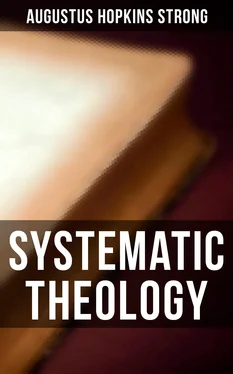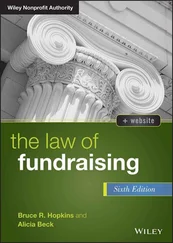E. G. Robinson: “Bushnell separates nature from the supernatural. Nature is a blind train of causes. God has nothing to do with it, except as he steps into it from without. Man is supernatural, because he is outside of nature, having the power of originating an independent train of causes.” If this were the proper conception of nature, then we might be compelled to conclude with P. T. Forsyth, in Faith and Criticism, 100—“There is no revelation in nature. There can be none, because there is no forgiveness. We cannot be sure about her. She is only aesthetic. Her ideal is harmony, not reconciliation. … For the conscience, stricken or strong, she has no word. … Nature does not contain her own teleology, and for the moral soul that refuses to be fancy-fed, Christ is the one luminous smile on the dark face of the world.”But this is virtually to confine Christ's revelation to Scripture or to the incarnation. As there was an astronomy without the telescope, so there was a theology before the Bible. George Harris, Moral Evolution, 411—“Nature is both evolution and revelation. As soon as the question How is answered, the questions Whence and Why arise. Nature is to God what speech is to thought.” The title of Henry Drummond's book should have been: “Spiritual Law in the Natural World,” for nature is but the free though regular activity of God; what we call the supernatural is simply his extraordinary working.
(a) Natural theology.—The universe is a source of theology. The Scriptures assert that God has revealed himself in nature. There is not only an outward witness to his existence and character in the constitution and government of the universe (Ps. 19; Acts 14:17; Rom. 1:20), but an inward witness to his existence and character in the heart of every man (Rom. 1:17, 18, 19, 20, 32; 2:15). The systematic exhibition of these facts, whether derived from observation, history or science, constitutes natural theology.
Outward witness: Ps.19:1–6—“The heavens declare the glory of God” ; Acts 14:17—“he left not himself without witness, in that he did good, and gave you from heaven rains and fruitful seasons” ; Rom. 1:20—“for the invisible things of him since the creation of the world are clearly seen, being perceived through the things that are made, even his everlasting power and divinity.” Inward witness: Rom. 1:19—τὸ γνωστὸν τοῦ Θεοῦ = “that which is known of God is manifest in them.” Compare the ἀποκαλύπτεται of the gospel in verse 17, with the ἀποκαλύπτεται of wrath in verse 18—two revelations, one of ὀργή, the other of χάρις; see Shedd, Homiletics, 11. Rom. 1:32—“knowing the ordinance of God” ; 2:15—“they show the work of the law written in their hearts.” Therefore even the heathen are “without excuse” (Rom. 1:20) . There are two books: Nature and Scripture—one written, the other unwritten: and there is need of studying both. On the passages in Romans, see the Commentary of Hodge.
Spurgeon told of a godly person who, when sailing down the Rhine, closed his eyes, lest the beauty of the scene should divert his mind from spiritual themes. The Puritan turned away from the moss-rose, saying that he would count nothing on earth lovely. But this is to despise God's works. J. H. Barrows: “The Himalayas are the raised letters upon which we blind children put our fingers to spell out the name of God.”To despise the works of God is to despise God himself. God is present in nature, and is now speaking. Ps. 19:1—“The heavens declare the glory of God, and the firmament showeth his handiwork” —present tenses. Nature is not so much a book , as a voice . Hutton, Essays, 2:236—“The direct knowledge of spiritual communion must be supplemented by knowledge of God's ways gained from the study of nature. To neglect the study of the natural mysteries of the universe leads to an arrogant and illicit intrusion of moral and spiritual assumptions into a different world. This is the lesson of the book of Job.” Hatch, Hibbert Lectures, 85—“Man, the servant and interpreter of nature, is also, and is thereby, the servant and interpreter of the living God.” Books of science are the record of man's past interpretations of God's works.
(b) Natural theology supplemented.—The Christian revelation is the chief source of theology. The Scriptures plainly declare that the revelation of God in nature does not supply all the knowledge which a sinner needs (Acts 17:23; Eph. 3:9). This revelation is therefore supplemented by another, in which divine attributes and merciful provisions only dimly shadowed forth in nature are made known to men. This latter revelation consists of a series of supernatural events and communications, the record of which is presented in the Scriptures.
Acts 17:23 —Paul shows that, though the Athenians, in the erection of an altar to an unknown God, “acknowledged a divine existence beyond any which the ordinary rites of their worship recognized, that Being was still unknown to them; they had no just conception of his nature and perfections” (Hackett, in loco). Eph. 3:9—“the mystery which hath been hid in God” —this mystery is in the gospel made known for man's salvation. Hegel, in his Philosophy of Religion, says that Christianity is the only revealed religion, because the Christian God is the only one from whom a revelation can come. We may add that as science is the record of man's progressive interpretation of God's revelation in the realm of nature, so Scripture is the record of man's progressive interpretation of God's revelation in the realm of spirit. The phrase “word of God” does not primarily denote a record —it is the spoken word, the doctrine , the vitalizing truth , disclosed by Christ; see Mat. 13:19—“heareth the word of the kingdom” ; Luke 5:1—“heard the word of God” ; Acts 8:25—“spoken the word of the Lord” ; 13:48, 49—“glorified the word of God: … the word of the Lord was spread abroad” ; 19:10, 20—“heard the word of the Lord, … mightily grew the word of the Lord” ; 1 Cor. 1:18—“the word of the cross” —all designating not a document, but an unwritten word; cf.Jer. 1:4—“the word of Jehovah came unto me” ; Ez. 1:3—“the word of Jehovah came expressly unto Ezekiel, the priest.”
(c) The Scriptures the final standard of appeal.—Science and Scripture throw light upon each other. The same divine Spirit who gave both revelations is still present, enabling the believer to interpret the one by the other and thus progressively to come to the knowledge of the truth. Because of our finiteness and sin, the total record in Scripture of God's past communications is a more trustworthy source of theology than are our conclusions from nature or our private impressions of the teaching of the Spirit. Theology therefore looks to the Scripture itself as its chief source of material and its final standard of appeal.
There is an internal work of the divine Spirit by which the outer word is made an inner word, and its truth and power are manifested to the heart. Scripture represents this work of the Spirit, not as a giving of new truth, but as an illumination of the mind to perceive the fulness of meaning which lay wrapped up in the truth already revealed. Christ is “the truth” (John 14:6) ; “in whom are all the treasures of wisdom and knowledge hidden” (Col. 2:3) ; the Holy Spirit, Jesus says, “shall take of mine, and shall declare it unto you” (John 16:14) . The incarnation and the Cross express the heart of God and the secret of the universe; all discoveries in theology are but the unfolding of truth involved in these facts. The Spirit of Christ enables us to compare nature with Scripture, and Scripture with nature, and to correct mistakes in interpreting the one by light gained from the other. Because the church as a whole, by which we mean the company of true believers in all lands and ages, has the promise that it shall be guided “into all the truth” (John 16:13) , we may confidently expect the progress of Christian doctrine.
Читать дальше












